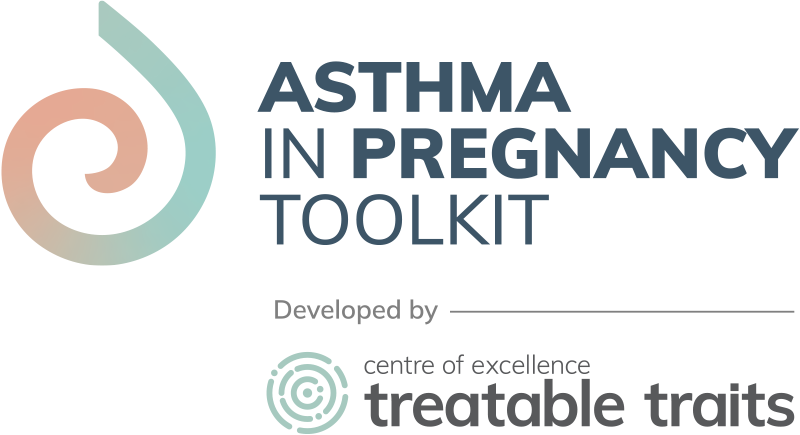
The care offered to the pregnant woman with asthma in Manchester, North West United Kingdom falls within 3 specific models of care:
- GP care, for well controlled mild to moderate asthma
- General asthma clinic for uncontrolled mild to moderate asthma
- Severe asthma specialist multidisciplinary pregnancy clinic for women:
- with previous intensive care unit asthma related admission
- requiring more than 2 oral corticosteroid courses per year
- in receipt of or being considered for biological therapy
Across all models of care the focus is upon optimisation of therapy and empowering self-management. Within the Manchester asthma services, through close liaison, teaching and support to the obstetric team, prompt referral is encouraged of any women attending the obstetric clinic with signs of poor asthma control (excessive short acting beta agonist use, poor adherence to therapy, risk taking behaviours, frequent asthma symptoms, hospitalisation, the requirement for oral corticosteroids). Through the submission of an electronic referral form the woman is triaged by a consultant to the general or severe asthma clinic.
A woman referred to the severe asthma pregnancy service is assessed by a multi-disciplinary team (MDT), including specialist nurse, medical consultant and pharmacist. At each consultation a comprehensive history, review of symptoms, lung function, FeNO, asthma control questionnaire, review of personal asthma action plan, inhaler technique and medication review are performed. The greatest often observed angst is around medication use and the impact upon the unborn child. The reassurance of a specialist pharmacist medication review and the reassurance that well-controlled asthma through regular adherence of inhaled therapy equates to better pregnancy outcomes appeases this anxiety and optimises adherence.
All clinical information is disseminated across all health-professionals involved in the woman’s care through documentation in patient handheld maternity notes and ensuring all correspondence is circulated to all parties involved in the woman’s care (including the woman). Both asthma teams communicate via an external MDT meeting to discuss concerns, complex cases and share best practice.
